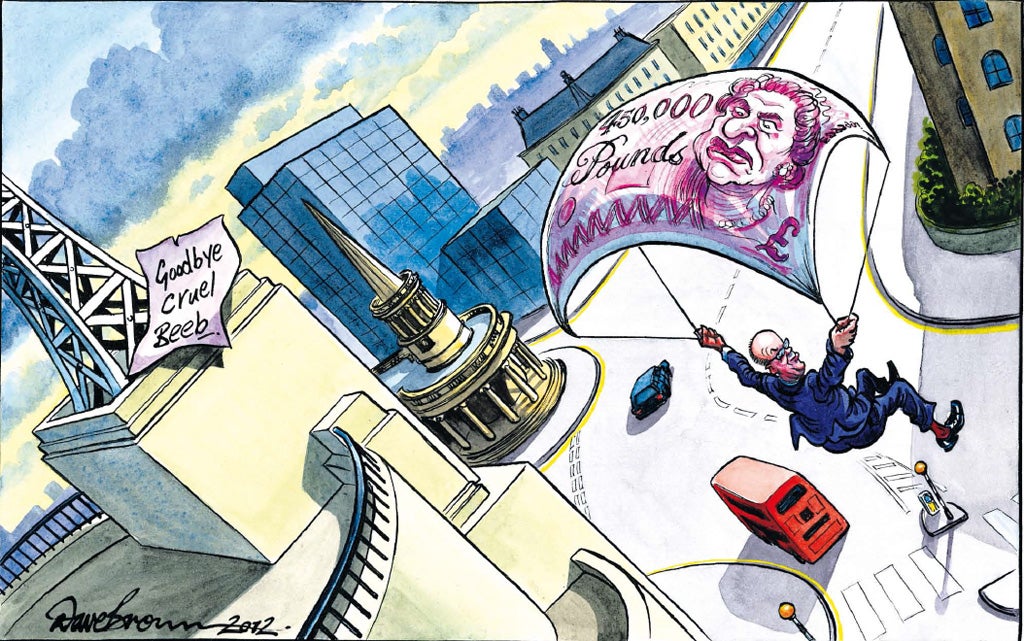George Entwistle and Sir Jeremy Heywood demonstrate the dangers of narrow professional experience in our highest public servants
The French call it déformation professionnelle - but these blinkered men of the machine are not an exclusively Gallic phenomenon


Your support helps us to tell the story
From reproductive rights to climate change to Big Tech, The Independent is on the ground when the story is developing. Whether it's investigating the financials of Elon Musk's pro-Trump PAC or producing our latest documentary, 'The A Word', which shines a light on the American women fighting for reproductive rights, we know how important it is to parse out the facts from the messaging.
At such a critical moment in US history, we need reporters on the ground. Your donation allows us to keep sending journalists to speak to both sides of the story.
The Independent is trusted by Americans across the entire political spectrum. And unlike many other quality news outlets, we choose not to lock Americans out of our reporting and analysis with paywalls. We believe quality journalism should be available to everyone, paid for by those who can afford it.
Your support makes all the difference.Look closely at these two responses to questions by a Parliamentary Committee. The first concerns Sir Jeremy Heywood, the Cabinet Secretary, about his investigation into the Plebgate affair. He was questioned after a Channel 4 programme showed that CCTV footage didn’t support the case against the cabinet minister Andrew Mitchell. The second response is from George Entwistle, the former BBC Director-General. He was being cross-examined about the handling of the Jimmy Savile affair.
Sir Jeremy was asked this: “You have said, Sir Jeremy, that it was not your role to investigate the police, but if you came across any evidence in this or any other case whereby there is questionable evidence of statements that have been made, do you not think that that should be reported to the police, or even the Independent Police Complaints Commission?” He replied: “My remit was to provide conclusions for the Prime Minister, and that is what I did.” At another point, Sir Jeremy remarked: “I can only do what I am asked to do.” Yesterday, the Public Administration Select Committee said Sir Jeremy was “not the appropriate person to investigate allegations of ministerial misconduct”.
Mr Entwistle was asked about a brief conversation he’d had with Helen Boaden, the head of news. At the time, he was in charge of television. She warned him that Newsnight was investigating Jimmy Savile, adding: “If it stands up, it may have an impact on your Christmas schedule.” Did Mr Entwistle then try to find out what had happened, if only to measure the risk to his schedules? No, he told the MPs, it would have been wrong for him to show “an undue interest”.
These responses caused astonishment because they appeared unlike what normal human beings would do. Mr Entwistle hears scandalous news about a big star. The rest of us would have instinctively asked: “What is this about? Tell me more.” But not Mr Entwistle. Likewise, Sir Jeremy tells the Committee that his report to the Prime Minister “basically said that there were some inconsistencies and inaccuracies between [what had been alleged] and what I could see in the CCTV footage”. Hang on. Faced with this evidence, shouldn’t he have pushed on because there was clearly something very fishy here? Perhaps the police were making up their story. But not Sir Jeremy.
The French call the mindset exemplified by the two men “déformation professionnelle”, a tendency to look at things exclusively from the point of view of one’s own professional experience. Sir Jeremy has been a civil servant for 28 years; Mr Entwistle spent 23 years at the BBC. They are highly intelligent and still relatively young. But they have both been gradually moulded into blinkered men of the machine. In any senior job, such rigidity of mind is a serious disadvantage. For the head of the civil service, it doesn’t cut the mustard.
Join our commenting forum
Join thought-provoking conversations, follow other Independent readers and see their replies
Comments